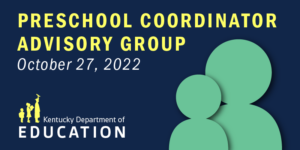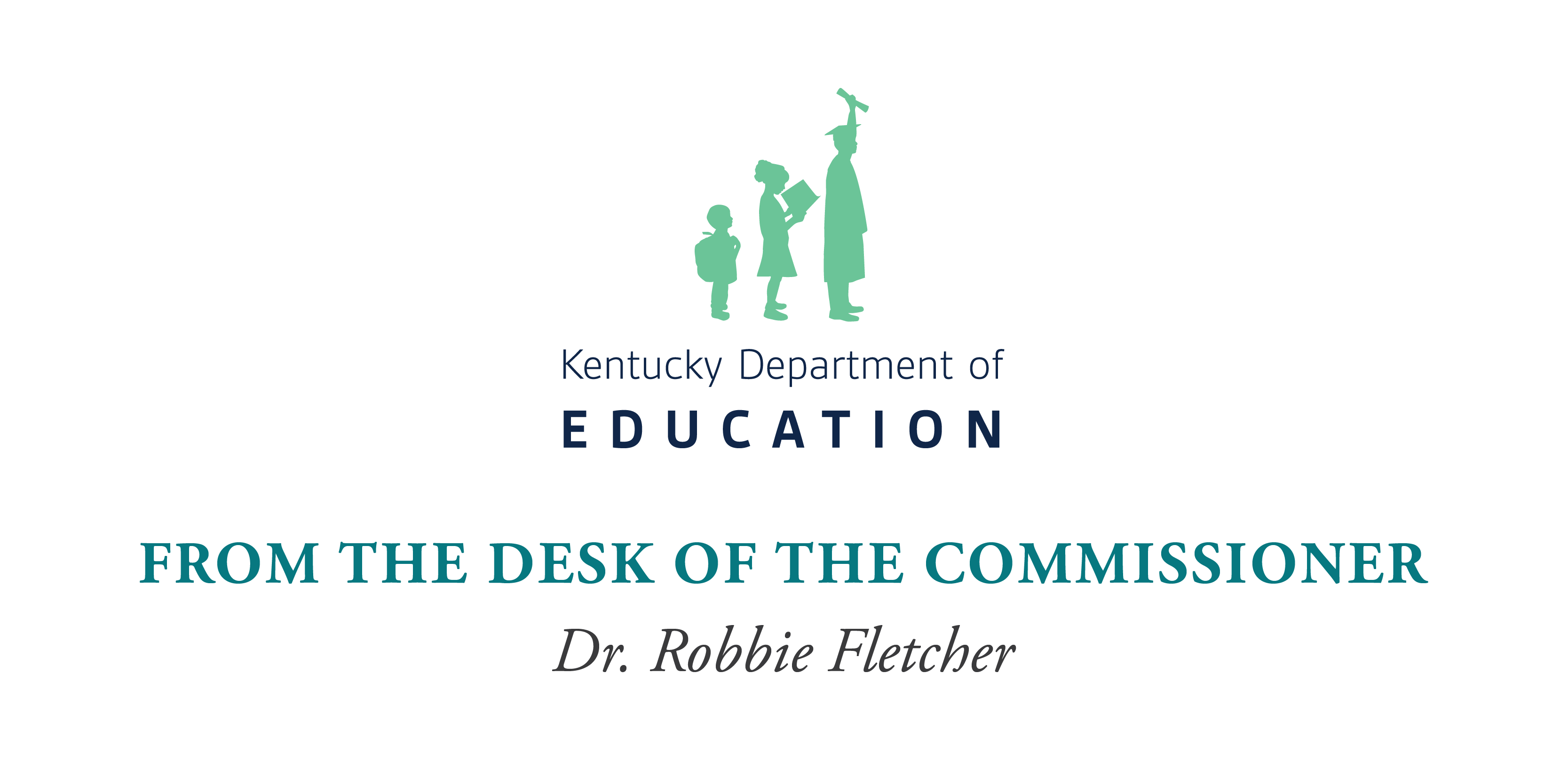
The Kentucky Department of Education’s (KDE’s) Preschool Coordinator Advisory Group (PCAG) heard an update on the Early Learning American Rescue Plan (ARP) during their Oct. 27 meeting.
Formed to advise KDE’s Office of Special Education and Early Learning (OSEEL) on unmet needs and issues relevant to state-funded preschool, PCAG’s 10 members represent districts from all five of the state’s early childhood regional training centers (RTCs).
Alisha Reeves, assistant early learning administrator with OSEEL, told PCAG members that a varied sampling of data from across the RTC regions showed districts are experiencing the same issues.
“We found out what you already know,” she said. “Across the state, COVID has impacted certain areas and it was not specific to the size of your district or the demographics of your district.
“We all saw the same problems and concerns and those included the students in social/emotional wellbeing and the demonstrations of significantly challenging behaviors within the classroom environment. We saw across the state a decrease in preschool enrollment of approximately 6,000 kids. That is rebounding and I think everybody is anxiously awaiting to see what child recount numbers show.”
The students currently enrolling in preschool programs “do have more significant needs” than the students in the past, Reeves said.
Across the districts, there is a need for teacher training in various areas: literacy, math, multi-tiered systems of support (MTSS) and the Response to Intervention program. This is, in part, due to teacher turnover and educators teaching outside their certification area. Training for these teachers would inform them on what the quality of early childhood should look like, Reeves said.
There also is a need to focus on teacher wellbeing, she said, as “our teachers are stressed and just facing a lot of new challenges.”
Through ARP, each early childhood RTC received funding to hire a Positive Behavioral Interventions and Supports (PBIS) pyramid coach.
The Pyramid Model is a multi-tiered framework with a continuum of evidence-based practices to promote expected behavior, prevent problem behavior, and intervene when students need more support.
“The RTCs were already doing the pyramid work, but this allowed that work to continue and also allowed it to grow and develop so they could personalize it to our districts,” said Reeves.
The pyramid model was created for early childhood educators to provide nurturing relationships and environments.
“I love the pyramid model work because it really captures everything that we say about Kentucky preschool. It captures our focus on quality environments. I love how it connects to the work that we are already doing,” Reeves said.
While all districts are able to sign on for intensive support in coaching and training, the ARP funding also provides the opportunity for targeted support for specific students or classrooms.
There are currently 35 districts, 77 buildings and 209 classrooms involved in Kentucky.
With this large scope of work across Kentucky, Reeves said another positive aspect is that “we’re speaking the same language” – not just in Kentucky, but also nationally.
“When we talk about implementing PBIS in Kentucky, we can use the data that we are collecting and compare it at a national level,” she said.
The next “big bucket” of work will allow teachers to connect and share ideas and strategies and to grow as teacher leaders, Reeves said.
When collecting data, OSEEL looked at why teachers are leaving the field. Reeves said a lot of the research shows that the reason is leadership: how leadership views them as professionals, their efficacy as teachers, and being acknowledged as the leaders that they are.
Personal Learning Communities (PLCs) are addressing this issue by creating a space to celebrate teachers and to let them discuss their work. The OSEEL early learning specialists hired through the American Rescue Plan funding are hosting in-person events for over 70 preschool teacher leaders across the state. Reeves said two were held at Jenny Wiley State Park and the Kentucky Transportation Cabinet offices in Frankfort. Two additional events will take place at Lake Barkley State Park and Lake Cumberland State Park.
The events that already have taken place included discussions on the PLC process, encouraged teachers to reach out to a support person to partner with and provided the teachers with resources. There will be virtual monthly meetings moving forward with a focus on topics such as family engagement, math literacy and teacher leadership.
Student oral communication skills and literacy across the state also were impacted during the pandemic. Reeves said. There was less human contact and that impacted many children’s language development. Schools are seeing an increase in the number of students needing interventions for speech as a result.
“Our big concern is our oral language didn’t develop, what will our reading skills look like when we’re in 3rd grade?” Reeves said.
She said early literacy trainings are being held around the state and at state-level conferences, and those may be expanded over the next few months.
Reeves said OSEEL has other projects on the horizon that are still being developed, including some that capture the vision of United We Learn, Kentucky’s plan for the future of education in the Commonwealth. United We Learn builds around three big ideas: creating a more vibrant experience for every student, encouraging innovation in our schools – especially when it comes to assessment – and creating a bold new future for Kentucky’s schools through collaboration with our communities.
“We really love the United We Learn vision and what that means for teaching and learning across the state,” said Reeves.




Leave A Comment